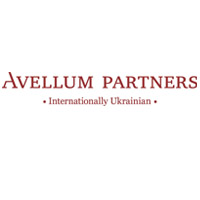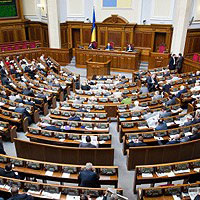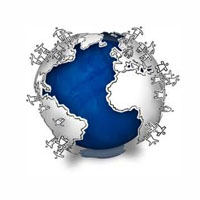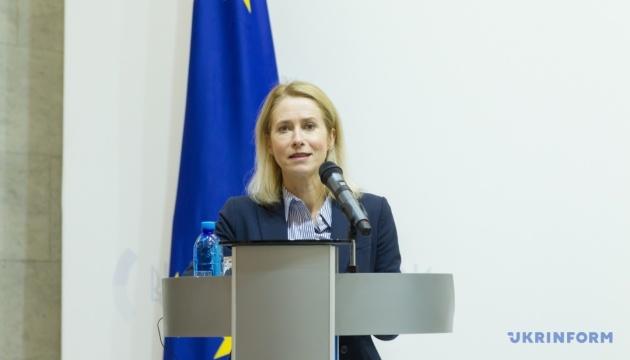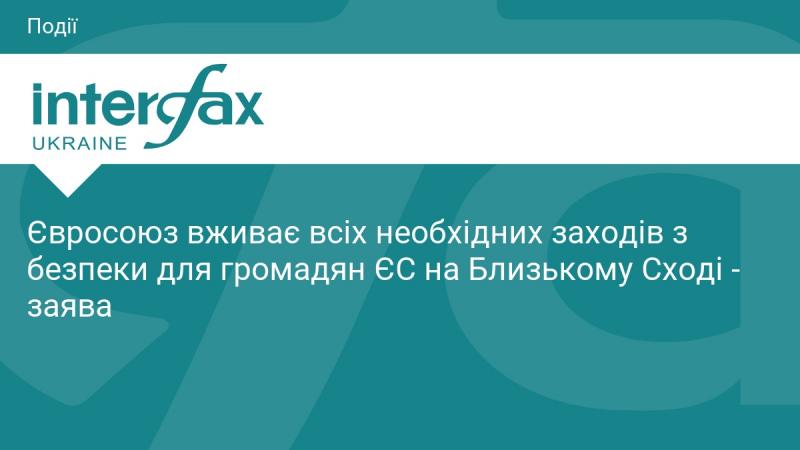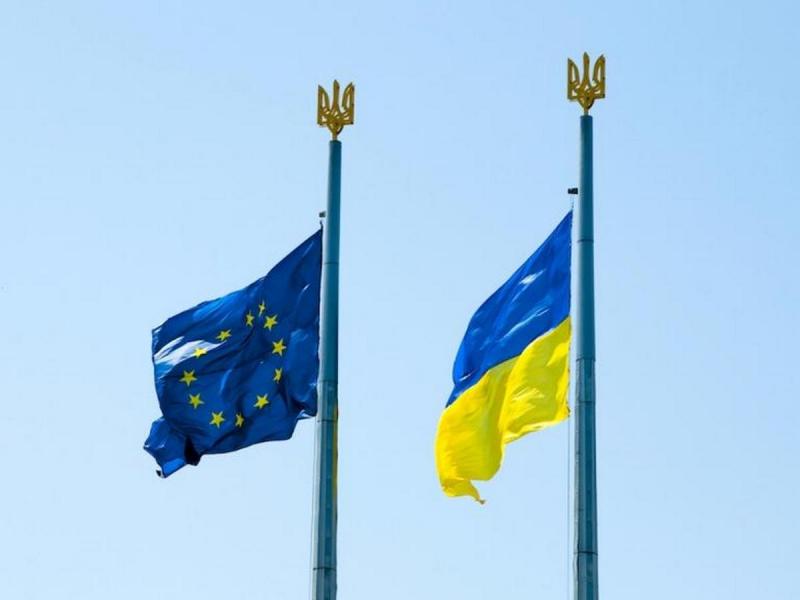IT services for non-residents: tax implications
Dmytro B. Ivanusa, Counsel
Orest V.Matviychuk, Associate
The overall modernization of Ukraine’s economy is highly dependent on development and state support for innovations, including, in particular, in the sector of the information and communications technologies (IT). The IT industry has become one of the most robust industries in the world and currently is the biggest part of the global economy in terms of aggregate turnover. Ukraine is committed to developing a so-called "information society" but the level of such informatization is still immature and requires fundamental changes in order to form an independent and self-reliant Ukrainian IT sector. Moreover, the IT companies suffer from the tax burden with respect to wages which are their main cost. All this motivates the IT companies to keep their activities in shadow and to provide their services through private entrepreneurs that impede consolidation of IT businesses and strengthen their competitiveness. At the same time, the IT products of Ukrainian professionals are highly reputable and recognizable in global markets and many foreign companies deal with Ukrainian partners with respect to software development. Ukrainian legislation allows a whole range of IT products transfer transactions but in each particular case tax implications must be considered.
This article focuses on the main tax issues arising in connection with the provision of IT services by Ukrainian suppliers to foreign customers.
Root of the matter
Neither the Tax Code of Ukraine, effective from 1 January 2011 (the Tax Code), which has introduced new taxation rules, nor the previously effective tax laws contain the definition of "IT-services". This creates a hidden tax threat for businesses involved in such types of activities. In addition, current Ukrainian legislation is silent on which types of activities or companies may be determined as IT-related. A wide variety of services come under the domain of the IT industry. In broad terms, the IT sector comprises of programmers who develop and engineer software, companies that render software integration and various IT consulting services, internet providers, personal computers and accessories manufacturers as well as mutual funds that invest in such businesses, etc.
It is worth mentioning that the frequent and often ambiguous amendments to the tax legislation make the conditions in which the Ukrainian IT service providers operate more unpredictable. For instance, although the Tax Code provided for an exemption of IT-related services from VAT, according to the recent amendments to the Tax Code, effective 1 July 2011 (the Amendments), these services are subject to VAT again.
IT and VAT
As to the rendering of any services to or by a non-resident, it is always important to determine the place of supply of services for VAT purposes. As a general rule, VAT at a 20% rate applies to the supply of services where the place of such supply is on the customs territory of Ukraine. The Tax Code determines the place of supply of services as the place where the supplier of such services is registered, save for certain exemptions.
Given that there is no definition of IT services in the Tax Code, in each particular case, it is advisable to review and analyze the terms and conditions of respective agreements relating to the provision of such services. In practice, companies are generally referring to the Classification of Types of Economic Activities or the State Classification of Goods and Services (the SCGS) as a confirmation of activities that they carry out for tax purposes. Considering that the terminology of the SCGS is similar to that used in the Tax Code and in its clarification the State Tax Administration of Ukraine relies on the SCGS, it appears that the latter may be appropriate document to refer for such purposes. However, it difficult to predict whether the tax authorities may not want to change the current approach in future.
According to the Tax Code, the place of supply of consulting, engineering, legal, accounting, audit, actuary and other similar consulting services as well as software development, supply and test services, provision of consultations relating to informatization and other informatiozation services, is the place of the recipient’s registration, or, in case of absence of such place, the place of its permanent or dominant residence. It is still not crystal clear what particular intention the Ukrainian legislator had including the words "supply of software" into the scope of the abovementioned services. Did it mean that such "supply of software" should be determined as a disposal of exceptional rights? Or whether determined as a sale of an item to an end-user? The answer to these questions is still pending. Before the Amendments came into force, all these services were VAT exempt irrespective the place of their supply. Starting from 1 July 2011, however, due to the Amendments, if such services are provided to a Ukrainian customer, then they are subject to the 20% VAT. Accordingly, the IT services provided by a Ukrainian IT-supplier to a foreign customer, are VAT exempt, because the place of supply is located outside the customs territory of Ukraine. Please see the below chart.
Royalties and withholding tax
Pursuant to the Tax Code, royalties generally mean payments of any kind received as consideration for use or for the right to use any copyright on literary work, including computer programs. It is notable that the term of "royalties" has been copied into the Tax Code from the previously effective legislation, thus having many inconsistencies.
Having said the above, where the parties enter into licensing or sub-licensing agreement, which does not generally cause a transfer of ownership rights regarding the software, then the payments under such agreement will most likely to qualify as royalties for the Ukrainian tax purposes.
The Tax Code generally limits (or continue to limit) the deductibility of certain expenses, including payment of royalties. For example, the deductibility of royalties paid to non-residents (except their permanent establishments in Ukraine) is limited to 4% of prior annual sales, or royalties paid to non-residents are not deductible, if such non-residents are not the beneficial owners of these royalties, or if the royalties concern intellectual property rights first occurred in Ukraine, or if such royalties are not taxed in the jurisdiction where such non-residents are incorporated, or if the non-resident has an off-shore status as determined by the Ukrainian government.
The Tax Code set out an anti-avoidance mechanism in respect of claiming double tax treaty benefits in cases where the beneficial owner of income does not reside in the relevant tax treaty jurisdiction. Such beneficial ownership requirements apply to any income derived by a non-resident from Ukrainian sources. Under the relevant provisions of the Tax Code, a beneficial owner of an income is a person entitled to receive such income. The Tax Code further provides that a person acting as an agent, nominal holder (owner) or intermediary in respect of the income does not qualify as the beneficial owner of such income. It is worth mentioning that the tax authorities currently consider sub-licensee as an "intermediary" for the purposes of beneficial ownership purposes.
Under the Tax Code, any income of foreign companies derived from sources within Ukraine is subject to the Ukrainian withholding tax, and such income includes, inter alia, royalties. The Tax Code further provides that the withholding tax may be reduced, including to zero, by the provisions of an applicable tax treaty on the avoidance of double taxation (the Double Tax Treaty). Generally, in order to benefit from the Double Tax Treaty, the respective non-resident must be:
(i) a resident of the country with which the Double Tax Treaty is concluded;
(ii) the beneficial owner of the royalties received in its home country; and
(iii) subject to tax in respect of such royalties in its home country.
Although the most Double Tax Treaties ratified by the Ukrainian parliament foreseen the beneficial ownership test, the tax authorities have not previously used or pay much attention to the beneficial ownership concept to deny treaty benefits to non-residents receiving income from Ukrainian sources. The practice of interpreting this concept has not yet been established in Ukraine, and therefore, there is an evident risk that different interpretations of the provisions of the Tax Code are possible and the non-resident may be viewed by the tax authorities as failing to satisfy the beneficial ownership test in respect of royalties income received from the resident. In such case, the payment of royalties will not be exempt from the Ukrainian withholding tax. Currently it is difficult to predict how the test of taxation of royalties or other incomes will be practically interpreted and applied by the tax authorities raising a number of questions to non-resident recipients of royalties.
Summary
Analysis of the applicable Ukrainian tax legislation confirms that there is a lack of mechanisms that stimulate the development of IT industry in Ukraine. The Tax Code brought some positive changes in relation to the taxation of this sector, but the overall regulatory framework appears to require further development. The above is a general description of certain Ukrainian law implications and until Ukrainian taxation rules are substantially revised making them clear and precise, any provision of IT-related services would require the involvement of tax specialists in order to avoid all the pitfalls which are hidden in Ukrainian legislation.
Orest V.Matviychuk, Associate
The overall modernization of Ukraine’s economy is highly dependent on development and state support for innovations, including, in particular, in the sector of the information and communications technologies (IT). The IT industry has become one of the most robust industries in the world and currently is the biggest part of the global economy in terms of aggregate turnover. Ukraine is committed to developing a so-called "information society" but the level of such informatization is still immature and requires fundamental changes in order to form an independent and self-reliant Ukrainian IT sector. Moreover, the IT companies suffer from the tax burden with respect to wages which are their main cost. All this motivates the IT companies to keep their activities in shadow and to provide their services through private entrepreneurs that impede consolidation of IT businesses and strengthen their competitiveness. At the same time, the IT products of Ukrainian professionals are highly reputable and recognizable in global markets and many foreign companies deal with Ukrainian partners with respect to software development. Ukrainian legislation allows a whole range of IT products transfer transactions but in each particular case tax implications must be considered.
This article focuses on the main tax issues arising in connection with the provision of IT services by Ukrainian suppliers to foreign customers.
Root of the matter
Neither the Tax Code of Ukraine, effective from 1 January 2011 (the Tax Code), which has introduced new taxation rules, nor the previously effective tax laws contain the definition of "IT-services". This creates a hidden tax threat for businesses involved in such types of activities. In addition, current Ukrainian legislation is silent on which types of activities or companies may be determined as IT-related. A wide variety of services come under the domain of the IT industry. In broad terms, the IT sector comprises of programmers who develop and engineer software, companies that render software integration and various IT consulting services, internet providers, personal computers and accessories manufacturers as well as mutual funds that invest in such businesses, etc.
It is worth mentioning that the frequent and often ambiguous amendments to the tax legislation make the conditions in which the Ukrainian IT service providers operate more unpredictable. For instance, although the Tax Code provided for an exemption of IT-related services from VAT, according to the recent amendments to the Tax Code, effective 1 July 2011 (the Amendments), these services are subject to VAT again.
IT and VAT
As to the rendering of any services to or by a non-resident, it is always important to determine the place of supply of services for VAT purposes. As a general rule, VAT at a 20% rate applies to the supply of services where the place of such supply is on the customs territory of Ukraine. The Tax Code determines the place of supply of services as the place where the supplier of such services is registered, save for certain exemptions.
Given that there is no definition of IT services in the Tax Code, in each particular case, it is advisable to review and analyze the terms and conditions of respective agreements relating to the provision of such services. In practice, companies are generally referring to the Classification of Types of Economic Activities or the State Classification of Goods and Services (the SCGS) as a confirmation of activities that they carry out for tax purposes. Considering that the terminology of the SCGS is similar to that used in the Tax Code and in its clarification the State Tax Administration of Ukraine relies on the SCGS, it appears that the latter may be appropriate document to refer for such purposes. However, it difficult to predict whether the tax authorities may not want to change the current approach in future.
According to the Tax Code, the place of supply of consulting, engineering, legal, accounting, audit, actuary and other similar consulting services as well as software development, supply and test services, provision of consultations relating to informatization and other informatiozation services, is the place of the recipient’s registration, or, in case of absence of such place, the place of its permanent or dominant residence. It is still not crystal clear what particular intention the Ukrainian legislator had including the words "supply of software" into the scope of the abovementioned services. Did it mean that such "supply of software" should be determined as a disposal of exceptional rights? Or whether determined as a sale of an item to an end-user? The answer to these questions is still pending. Before the Amendments came into force, all these services were VAT exempt irrespective the place of their supply. Starting from 1 July 2011, however, due to the Amendments, if such services are provided to a Ukrainian customer, then they are subject to the 20% VAT. Accordingly, the IT services provided by a Ukrainian IT-supplier to a foreign customer, are VAT exempt, because the place of supply is located outside the customs territory of Ukraine. Please see the below chart.
| Supplier | Customer | Place of Supply | VAT |
| Resident | Non-resident | Outside of Ukraine | Not applicable |
| Non-resident | Resident | Ukraine | 20% |
| Resident | Resident | Ukraine | 20% |
Royalties and withholding tax
Pursuant to the Tax Code, royalties generally mean payments of any kind received as consideration for use or for the right to use any copyright on literary work, including computer programs. It is notable that the term of "royalties" has been copied into the Tax Code from the previously effective legislation, thus having many inconsistencies.
Having said the above, where the parties enter into licensing or sub-licensing agreement, which does not generally cause a transfer of ownership rights regarding the software, then the payments under such agreement will most likely to qualify as royalties for the Ukrainian tax purposes.
The Tax Code generally limits (or continue to limit) the deductibility of certain expenses, including payment of royalties. For example, the deductibility of royalties paid to non-residents (except their permanent establishments in Ukraine) is limited to 4% of prior annual sales, or royalties paid to non-residents are not deductible, if such non-residents are not the beneficial owners of these royalties, or if the royalties concern intellectual property rights first occurred in Ukraine, or if such royalties are not taxed in the jurisdiction where such non-residents are incorporated, or if the non-resident has an off-shore status as determined by the Ukrainian government.
The Tax Code set out an anti-avoidance mechanism in respect of claiming double tax treaty benefits in cases where the beneficial owner of income does not reside in the relevant tax treaty jurisdiction. Such beneficial ownership requirements apply to any income derived by a non-resident from Ukrainian sources. Under the relevant provisions of the Tax Code, a beneficial owner of an income is a person entitled to receive such income. The Tax Code further provides that a person acting as an agent, nominal holder (owner) or intermediary in respect of the income does not qualify as the beneficial owner of such income. It is worth mentioning that the tax authorities currently consider sub-licensee as an "intermediary" for the purposes of beneficial ownership purposes.
Under the Tax Code, any income of foreign companies derived from sources within Ukraine is subject to the Ukrainian withholding tax, and such income includes, inter alia, royalties. The Tax Code further provides that the withholding tax may be reduced, including to zero, by the provisions of an applicable tax treaty on the avoidance of double taxation (the Double Tax Treaty). Generally, in order to benefit from the Double Tax Treaty, the respective non-resident must be:
(i) a resident of the country with which the Double Tax Treaty is concluded;
(ii) the beneficial owner of the royalties received in its home country; and
(iii) subject to tax in respect of such royalties in its home country.
Although the most Double Tax Treaties ratified by the Ukrainian parliament foreseen the beneficial ownership test, the tax authorities have not previously used or pay much attention to the beneficial ownership concept to deny treaty benefits to non-residents receiving income from Ukrainian sources. The practice of interpreting this concept has not yet been established in Ukraine, and therefore, there is an evident risk that different interpretations of the provisions of the Tax Code are possible and the non-resident may be viewed by the tax authorities as failing to satisfy the beneficial ownership test in respect of royalties income received from the resident. In such case, the payment of royalties will not be exempt from the Ukrainian withholding tax. Currently it is difficult to predict how the test of taxation of royalties or other incomes will be practically interpreted and applied by the tax authorities raising a number of questions to non-resident recipients of royalties.
Summary
Analysis of the applicable Ukrainian tax legislation confirms that there is a lack of mechanisms that stimulate the development of IT industry in Ukraine. The Tax Code brought some positive changes in relation to the taxation of this sector, but the overall regulatory framework appears to require further development. The above is a general description of certain Ukrainian law implications and until Ukrainian taxation rules are substantially revised making them clear and precise, any provision of IT-related services would require the involvement of tax specialists in order to avoid all the pitfalls which are hidden in Ukrainian legislation.


